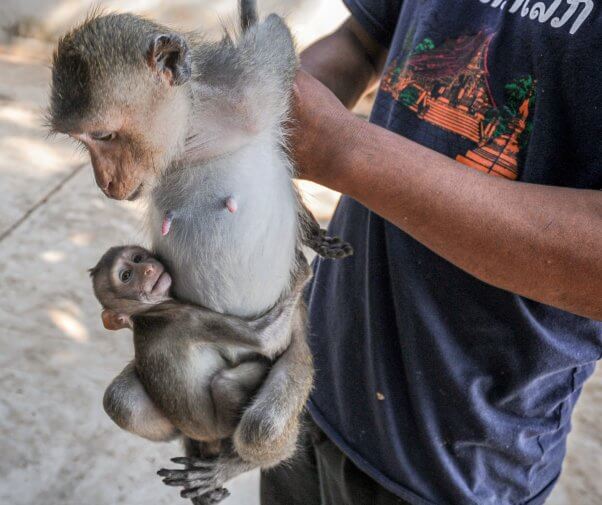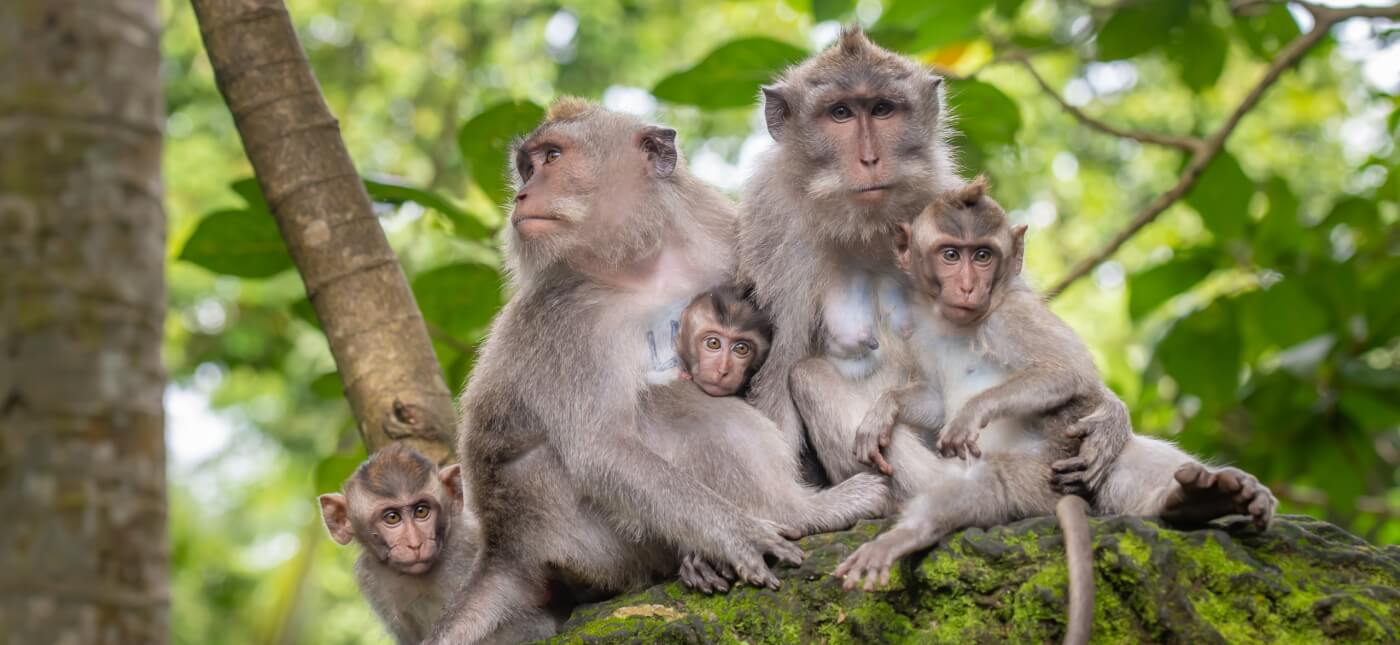Is TB Coming to a Lab Near You?
Experiments on Monkeys Are Breeding a Silent Killer
By Kathy Guillermo, PETA Senior Vice President

I know how devastating TB is. I lost my grandmother to the disease before I had the chance to meet her – she died when my father was just 7 years old. He remembers her sewing a Halloween costume even while she was suffering from severe illness and coughing up blood. It is hard to put into words what TB has taken from my family.
Now here’s a revelation: Experimenting on animals is not only failing miserably at curing human diseases but also spreading human diseases by sending deadly pathogens around the globe, perhaps even into your community. PETA has uncovered damning evidence that the international primate pipeline, which ships monkeys to laboratories around the world, is fast-tracking potentially fatal tuberculosis (TB) into human populations. And things could get much worse. Here’s what we found – and what we’re doing.

Coming to You From an Indian Ocean Honeymoon Island
Mauritius is a tropical paradise. It’s also home to one of the largest suppliers of monkeys to laboratories in North America and Europe. Thousands of long-tailed macaques in Mauritius are snatched from their families and forest homes or bred on squalid farms where diseases flourish.
A large percentage of the monkey population appears to harbor a latent form of TB. For most monkeys in their natural homes, TB causes no symptoms because their immune systems keep it in check.
But for monkeys swallowed up into the primate pipeline, the extreme stress of being torn away from everything they’ve known, shoved into cramped boxes where they’re forced to sit in their own filth for up to a week straight, and shipped around the world can cause latent TB to turn into active TB. It’s highly contagious to other monkeys, and any humans who come into contact with them – from airline passengers to laboratory employees – are at risk.

TB Hitches a Ride Around the World
When PETA learned of a TB outbreak on a monkey farm in Mauritius, we sounded the alarm, warning that monkeys who had been shipped internationally could be carrying the disease. We urged the US Centers for Disease Control and Prevention (CDC) to ban monkey imports from the country. No one listened – but they should have.

PETA Honorary Director James Cromwell spoke at a US congressional briefing on the deadly and deceptive monkey-importation industry and urged lawmakers to implement PETA scientists’ Research Modernization Deal.
Barely a month later, PETA exposed documents confirming our concerns: Monkeys arriving in the US from overseas had brought the deadly disease along for the ride.
The stressed-out monkeys were flown to Florida and then underwent a 31-day quarantine as mandated by the CDC. When the TB test (which is notoriously unreliable) failed to detect infection during quarantine, the primates were cleared and trucked to Northern Biomedical, a Michigan laboratory. There, at least three monkeys tested positive for TB. Two laboratory employees were exposed and were referred for treatment.
And it didn’t stop there. We later uncovered documents showing that laboratories in nine other states also received shipments of monkeys who either had outdated test results or no proof of any TB test whatsoever. And since monkeys from Mauritius are shipped worldwide, the disease is undoubtedly being imported into every country that receives them.
Disregard for Monkeys and Public Health
Why aren’t health regulators preventing this? Even in the wake of the TB outbreak in Mauritius, the CDC has allowed suppliers to keep right on importing monkeys from that region.
The CDC’s own records in recent years reveal an increase in the number of animals arriving carrying pathogens for diseases transmissible to humans. Primates carry and transmit not only TB but also herpes B virus, antimicrobial-resistant microbes, Ebola-like viruses, simian hemorrhagic fever virus, shigellosis, salmonella, campylobacter, malaria, dengue, and leprosy.
PETA is calling on state veterinarians and health officials to prohibit the entry of monkeys and initiate a TB quarantine in all facilities that have received monkeys over the past 18 months. We’re urging federal authorities to shut down the cruel and dangerous monkey-importation pipeline before it sickens more people or starts the next pandemic. And we’re pushing hard to end the deadly business of experimenting on monkeys and other animals altogether.
Be Part of It!
Help PETA stop the spread of this global health risk: US readers, insist that the CDC shut down the monkey-abduction pipeline. And please ask your legislators to support PETA’s Research Modernization Deal.



